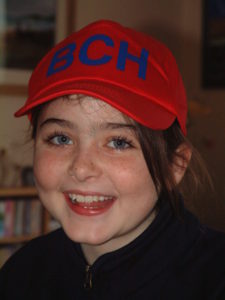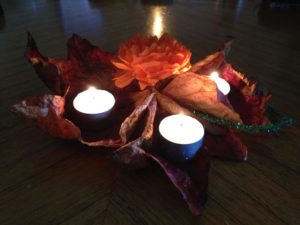Our paths crossed eighteen years ago, but we never met…
A couple of weeks earlier, Lucia, healthy, happy, filled with life and ready to taste it all, showed signs of jaundice in her eyes. A trip to the local health centre, just to check it out. The sun had already gone down so our GP sent us to the local hospital for blood tests. “They’ll have the results faster than we can.”
Through A&E, Lucia was seen by a paediatric consultant. She recognised two tiny red spots as spider nevi, often harmless, but when linked to jaundice, can be signs of a dysregulated liver. “Go home now, but we may need you to come back tomorrow.”
Lucia was already asleep in bed when the hospital called. The blood results were in. “Come back in the morning, with an overnight bag…”
A day later, Lucia was transferred to the Children’s Hospital in Belfast. A few days after that she travelled with her Mum, and a nurse, to Birmingham Children’s Hospital, the paediatric liver centre covering Northern Ireland.

Lucia, still wondering at all the attention when she didn’t feel unwell, mostly missed her big sister, still at school in Northern Ireland, and staying in the home of good friends. Tests and trial treatments continued, but then Lucia’s condition visibly deteriorated within a few short days. Acute liver failure due to autoimmune hepatitis.
“We believe the only chance for Lucia’s recovery is to put her on the urgent list for a liver transplant. Will you (her parents) give us your consent?” Even tangled in all our emotions, doubts and fears, we had only one answer to that question.
Probably in a similar, small room, close to an Intensive Care Unit in another hospital, a very different question was being asked of another family. “Have you ever discussed organ donation?”
Now, we’re guessing. That question could have been asked in any number of ways, and almost certainly in the most sensitive and caring ways that a specialist transplant nurse can manage, bringing training, skill and empathy to an intensely difficult moment.
It could have been the first time the idea had ever occurred to the family. In the hard face of hearing the worst news possible about their loved one, now comes a question about others.
Or the question may not have come at all. The family may have already raised it themselves after conversations under better circumstances. “If anything happens to me and I can become an organ donor, that’s what I’d like to do. Will you make sure that happens? And what about you, what do you think?”
We don’t know what shaped their answer, probably never will. But the answer was given. Lucia’s wait on the “super urgent list” was less than 24 hours.
What followed was not always plain sailing, not for Lucia, nor, we imagine, for the bereaved donor family. But if we could give anything back it would be a hope that their grief is threaded through with pride, pride in their life-giving decision, however it came to be made, and in the immeasurable gratitude it brought for Lucia, her family, her friends, and countless other lives touched by her own in the twelve and a half years made possible through that first transplant.
Lucia’s autoimmune hepatitis was idiopathic, simply meaning its exact cause was unknown. It may always remain a mystery.
There can be less mystery in the decision to agree to organ donation. That can start with a conversation. Today. Someone, somewhere, may be grateful for the rest of their lives…

